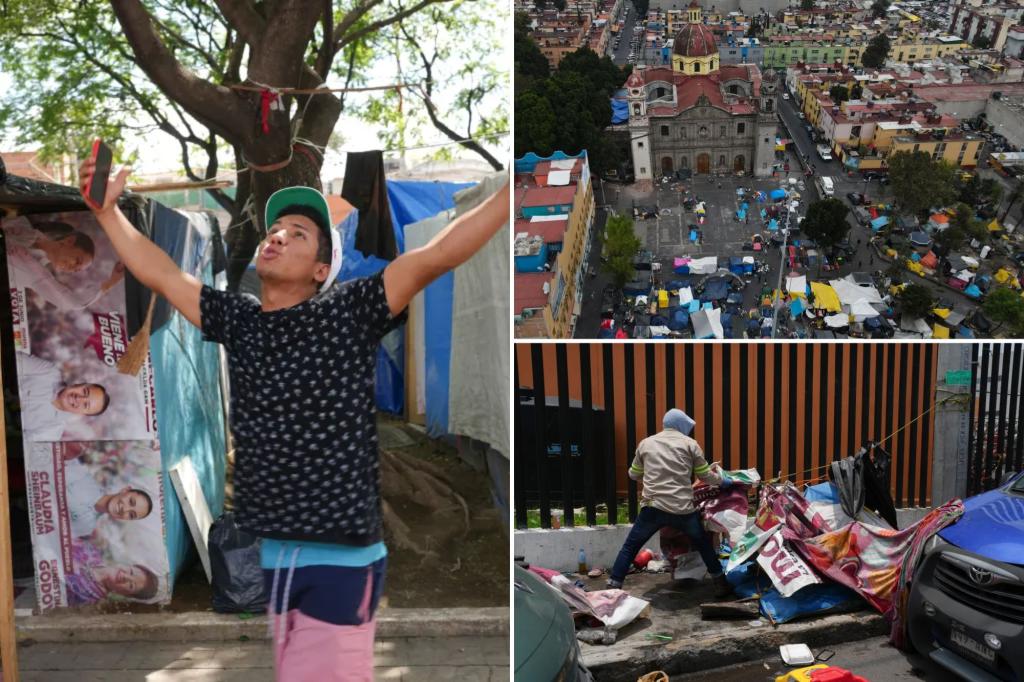The migrant crisis in Mexico City has become a significant issue as migrants await asylum appointments in the U.S. due to the Biden administration’s restrictions on asylum seekers. Many migrants, like Eliezer López, are forced to live in crowded, makeshift camps with poor living conditions as they wait for their appointment. Historically, Mexico City was not a stop for migrants, but delays in securing appointments and dangers at the northern border have turned the city into a temporary destination for thousands.
As the migrant population in Mexico City continues to grow, shelters are limited, and migrants are left to fend for themselves. Many migrants previously contained in southern Mexican cities have now begun aiming for Mexico City to make their asylum appointments there. The CBP One app has been a key factor in directing migrants towards the Mexican capital to await their turn for asylum in the United States.
The camps in Mexico City are a maze of tents and tarps, providing some sense of refuge for migrants who can share space with familiar faces and avoid the strict rules of shelters. However, living conditions in the camps are harsh, with outbreaks of illnesses and limited resources for medical attention. Despite efforts to keep the camps clean and organized, tensions with neighbors have escalated, leading to mass evictions in some instances.
Residents of the camps have organized themselves to create more comfortable living conditions, such as setting up an impromptu water system with a fixed schedule to distribute water to each tent. However, the uncertainty of life in the camps takes a toll on migrants, affecting their mental health. Many families, like that of Keilin Mendoza, constantly struggle with illnesses and limited access to medical care, making their living situation even more challenging.
The lack of response from government officials in Mexico City regarding the migrant camps has led to tensions between camp residents and local neighbors. Calls for assistance from the government have gone unanswered, leading to protests in some neighborhoods. Despite trying to make their living spaces as dignified as possible, migrants like Salvadoran Sonia Rodríguez still face the harsh reality of living in improvised camps far from their normal lives. The ongoing crisis in Mexico City highlights the challenges faced by migrants awaiting asylum appointments while living in temporary camps in difficult conditions.


